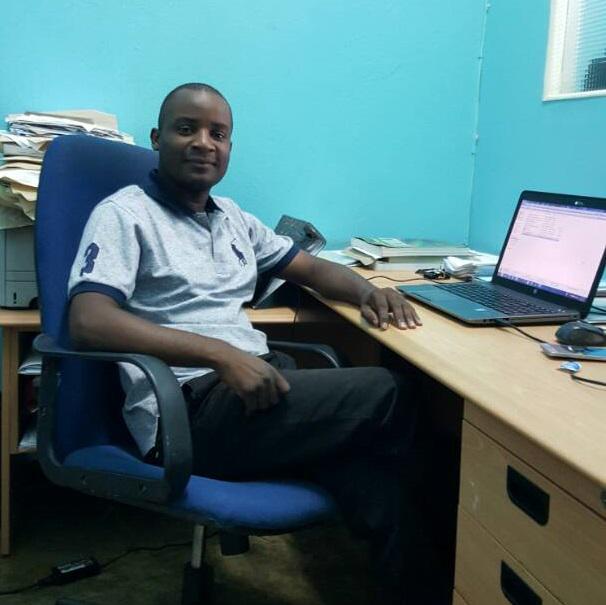Researcher of the Month: Konwani Chidziwisano

Konwani Chidziwisano
Our May Researcher of the Month is Konwani Chidziwisano, a PhD fellow at WASHTED at the University of Malawi - The Polytechnic. Here, he tells us about his background in environmental health and his focus on the Integrating WASH and Food Hygiene project.
What is your background?
My background is in environmental health. I did my bachelors in environmental health, and my masters too - so a lot of environmental health! I worked as an Environmental Health Officer with the Ministry of Health, and then as a WASH specialist for World Vision International. Then I joined the University of Malawi as a Lecturer, and worked on a lot of projects at the university before joining the SHARE team. I’ve also conducted a number of consultancy projects in water and sanitation, particularly on baseline, mid-term and end-line surveys.
What are you currently working on?
I’m concentrating on the behaviour change component in SHARE. Our project here is divided into two: the microbiological component and the behavioural change component. I’m working as a PhD fellow on the project, and my PhD will be around the behaviour change component of SHARE.
What will you be working on in the next few months?
In the next few months, we are collecting data – observation data. Then we will analyse the data, and then writing reports and maybe starting to write some publications. We will start designing the intervention based on the findings we have from the formative research.
What made you interested in this area of work?
I’m interested for a number of reasons. I have worked a lot on WASH issues and I was looking for an opportunity where I can do more research. When you are working with NGOs, there are a number of gaps. Many NGOs in Malawi are not research orientated – they implement, but they don’t always sit down to look at the gaps we need to fill. So this work is an opportunity to look at some of the gaps in food hygiene. When we work with NGOs who specialise in health, we don’t really talk much about food hygiene and WASH. We talk about safe water, we talk about sanitation, we talk about hygiene promotion. But the issue of food hygiene, especially for the child, doesn’t always come out. So this is an opportunity for me to look at it and have an impact in our country.
I’m also interested in how we can build more knowledge in WASH and in food hygiene, and it will also help me improve my career, where I can even have research projects of my own as a PI. This is also building capacity in me, and giving me confidence that I can do these things on my own.
What do you find most challenging about your work?
What I find most challenging in SHARE is to bring in different behaviour change models – to try and understand these and use the models to design an intervention that will bring impact to the people. My previous work was different and we didn’t look much at models, but now we must think about how these models can bring change.
Do you think the research will have an impact on policy?
I think the research will have an impact. I’ve never heard of any other big research project in relation to food hygiene and WASH being conducted in Malawi like this.
We have evidence from other countries on complementary food hygiene and WASH, but not in Malawi, I don’t think. If our findings say that complementary food hygiene can have an impact, then I think the government will try and modify policies to include our findings. Whenever people are talking about WASH, they should also be talking about food hygiene, based on our findings. So I think it will have an impact if we are doing our work properly.
If there was one thing you would change about your research, what would it be?
If I were to change one thing, I would like to try this research in other parts of Malawi. Malawi is generally divided into three: we have the southern part, the central part and the northern part. I would try and test it in the other two areas, as currently we are only doing it in the southern part. Despite being one country, culturally we do differ slightly. I would try and see the impacts in other parts of the country, and then incorporate the findings into one.
What advice would you give to someone who was starting out in this field of research?
Before the person starts, I would tell them to engage key stakeholders, like government and international agencies and local NGOs – they should be part of the research right from the start. Whatever findings come out, these stakeholders should have an input. I would also recommend they read the literature widely and understand what others have done, especially on the behaviour change models. You should understand the models so you can select the best model for your use. If you do these things, you’re likely to have better results.
Read April's Researcher of the Month interview here.
